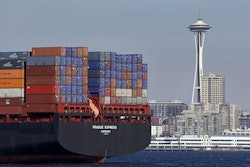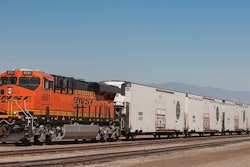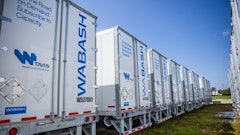The Port of Seattle and the Port of Tacoma, long time rivals and at times bitter enemies separated by just 30 miles across the Puget Sound, turned more then a few heads last week when they announced they have applied to the Federal Maritime Commission to begin co-operation talks. Following a fierce year of competition in 2013, it appears that both ports are in agreement that their interests would be better served if they collaborated on a range of issues, including terminal investments and terminal handling charges.
But don't expect too much collaboration. In a joint statement, the ports ruled out an outright merger of port authorities stating that “both port commissions agree that a change in governance, such as a merger, will not be part of this discussion and no subsequent outcomes are presupposed.”
Both ports are owned by Washington State, but have been run independently. In recent years, the competition between the two has seen cargo volumes ebb and flow, depending on the particular deals carriers have been able to secure with terminal operators.
The proposal, signed jointly by Tacoma chief executive John Wolfe and Seattle deputy chief executive Kurt Beckett on behalf of chief executive Tay Yoshitani, warns that “recent developments in the shipping industry threaten the future of the US Pacific north-west trade”.
The US Midwest hinterland of both ports is identical and the statement adds: “This discretionary cargo is critical for the financial stability of the ports and the private marine terminal operators who run them.”
The co-operation proposal is based on three key trends, the biggest of which is increased competition from ports across North America, specifically the Canadian Ports of Vancouver and the newer Port of Prince Rupert. It also highlights the huge losses incurred by transpacific carriers, which has led to consolidation into mega-alliances such as the G6 and P3, and “could lead to fewer port calls, unless ports can craft cooperative responses."
Finally, the trend towards larger vessel sizes will also likely to lead to fewer port calls – although those ports which can service bigger ships through deeper berths and larger cranes will ultimately prosper.
“It is imperative in this environment that Seattle and Tacoma have the ability to discuss how they can both succeed and flourish in the changing environment," the proposal states. "The agreement thus allows the parties to discuss and share information on the operation of their container terminals – including planning, development and utilization of facilities, and rates of return.”
To read more, click HERE.


















